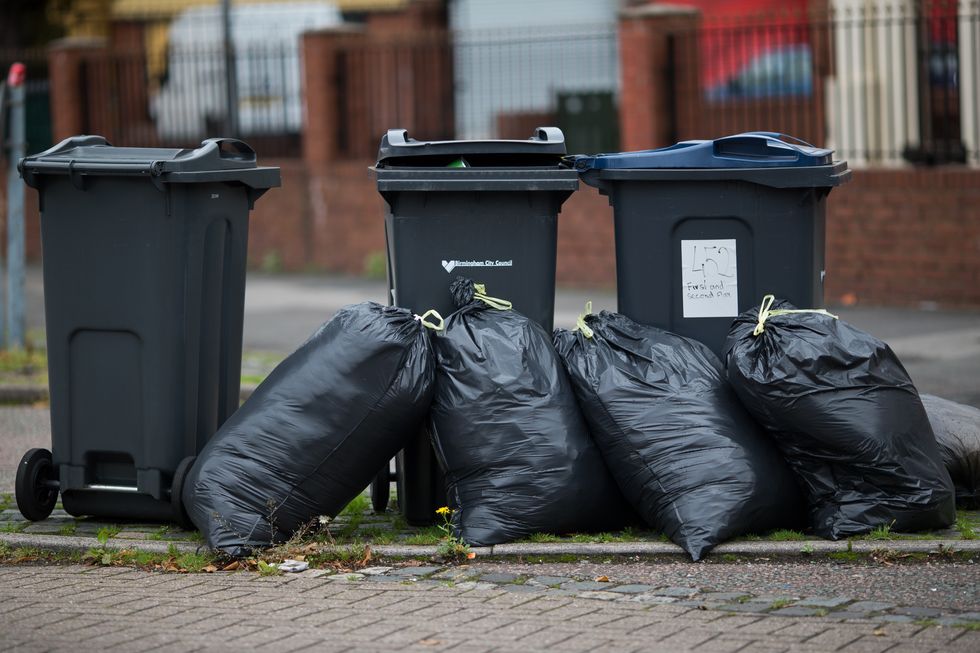Cheshire East Council is set to approve controversial plans to reduce household waste collections from fortnightly to once every three weeks, despite facing significant public opposition, with locals branding the change a “disgrace”.
The changes, due to take effect in April 2026, come as the council grapples with financial challenges and the need to implement new recycling reforms.
The move has sparked considerable backlash from local residents, with 84 per cent of respondents opposing the proposal during a public consultation.
The council maintains it has “no choice” but to implement the measure, which coincides with the deadline for introducing mandatory weekly food waste collections across the region.

Cheshire East Council is set to approve controversial plans to reduce household waste collections from fortnightly to once every three weeks
Getty/Google Street View
In a comprehensive consultation, more than 6,200 local residents voiced their opinions on the proposed changes.
An overwhelming 77 per cent of respondents strongly opposed the plan, with an additional six per cent indicating they tended to oppose it.
Key concerns raised by residents included fears about increased vermin activity, littering, and fly-tipping in the area.
The consultation also revealed public resistance to the council’s proposed mitigation measures, with 69 per cent opposing plans to introduce more education and enforcement officers.
Mick Warren, chair of the council’s environment and communities committee, explained the monetary reasoning behind the decision.
MORE LIKE THIS:
- Couple handed £1.2k fly-tipping fine after thieves stole and dumped bin bag 30ft away
- Pensioner fined £500 for ‘fly-tipping’ after leaving ‘neat’ bag of clothes near full donation bin
- Rubbish left uncollected for SIX WEEKS, with rats turning London street into ‘health hazard’

Bins piled up (stock)
PA
“Financially, we have no choice but to propose a move to three-weekly black bin collections,” he stated.
The change is expected to significantly reduce costs associated with implementing weekly food waste collections.
“It could reduce the expected costs of introducing weekly food waste collections from £1.75m per year to around £450,000,” Warren explained.
Vexed locals took to social media to voice their frustrations. One said: “They are cutting the service and also implementing bin education and enforcement people to check that rubbish doesn’t go in the wrong bin. This is on top of closing many of the smaller local tips in Cheshire East. Any way they can fine people they will. It’s a disgrace.”
A second said: “Absolutely disgusting, but I’m not surprised! So despite residents’ opposition, CEC’s answer is to spend money on ‘education’ ? – whatever that is – and ‘enforcement officers’ with the added bonus of fining people who leave their bins out! That doesn’t really answer residents questions re the consultation. What a total waste of our money!”
Another user online said: “It’s going to Stink in East Cheshire with the announcement of the trash only being collected every three weeks.”
A fourth chipped in: “Absolute nonsense, our bin is full every other week and we are not a large family. They’re even talking about fines for leaving your bin out. So what are you supposed to do if you’re on holiday? Wait six weeks?”

The council maintains it has ‘no choice’ but to implement the measure
Google Street View
The decision follows the council’s earlier approval of a £91m cost saving plan this year.
The changes are directly linked to new food waste recycling requirements, which councils must implement by April 2026.
To mitigate concerns, the council has announced several additional measures alongside the collection changes.
A new £80 fixed penalty notice will be introduced for residents who leave their bins out for extended periods before or after scheduled collections.
The council has acknowledged that some households may require larger bins to cope with the reduced collection frequency.
Special provisions will be made for larger households and those disposing of bulky medical waste, with the council pledging to clarify its waste policy guidance for these cases.
The authority also plans to invest in additional education and enforcement officers, despite this measure facing opposition from 69 per cent of consultation respondents.
The final approval of these proposals is expected at the upcoming Environment and Communities Committee meeting.